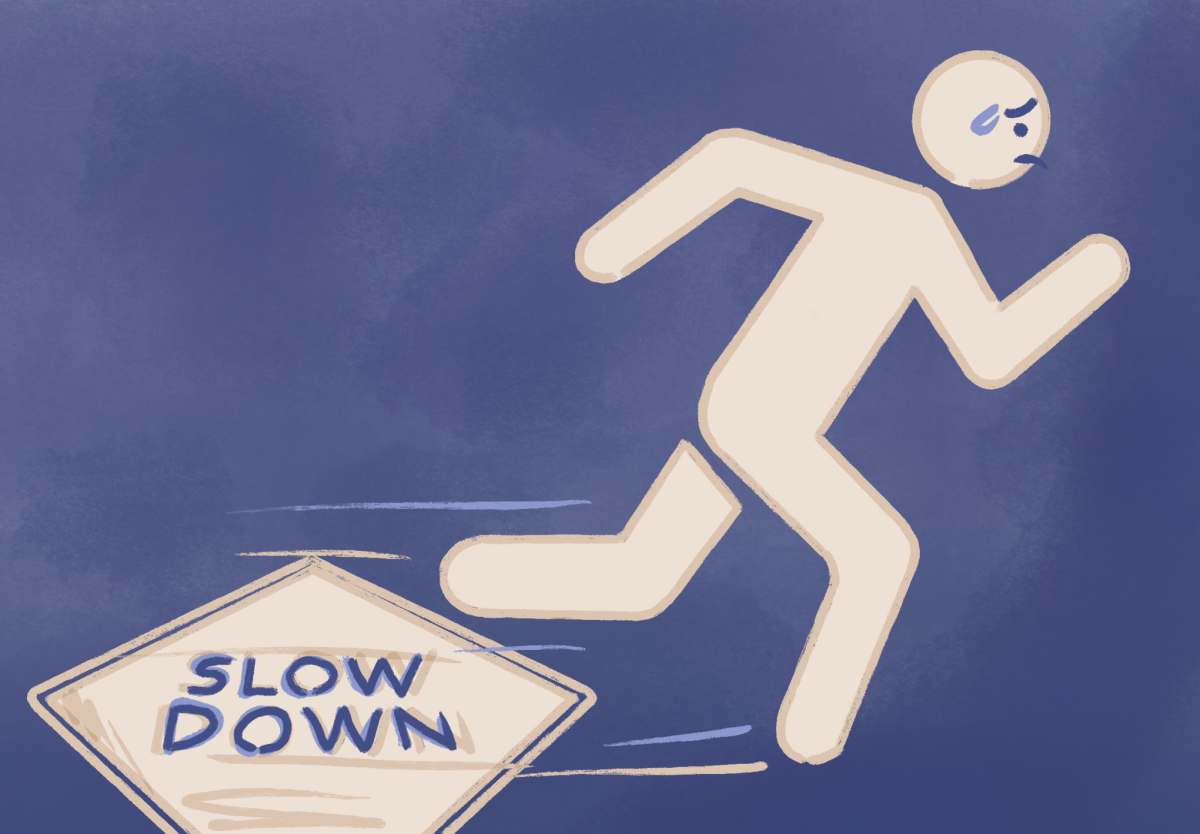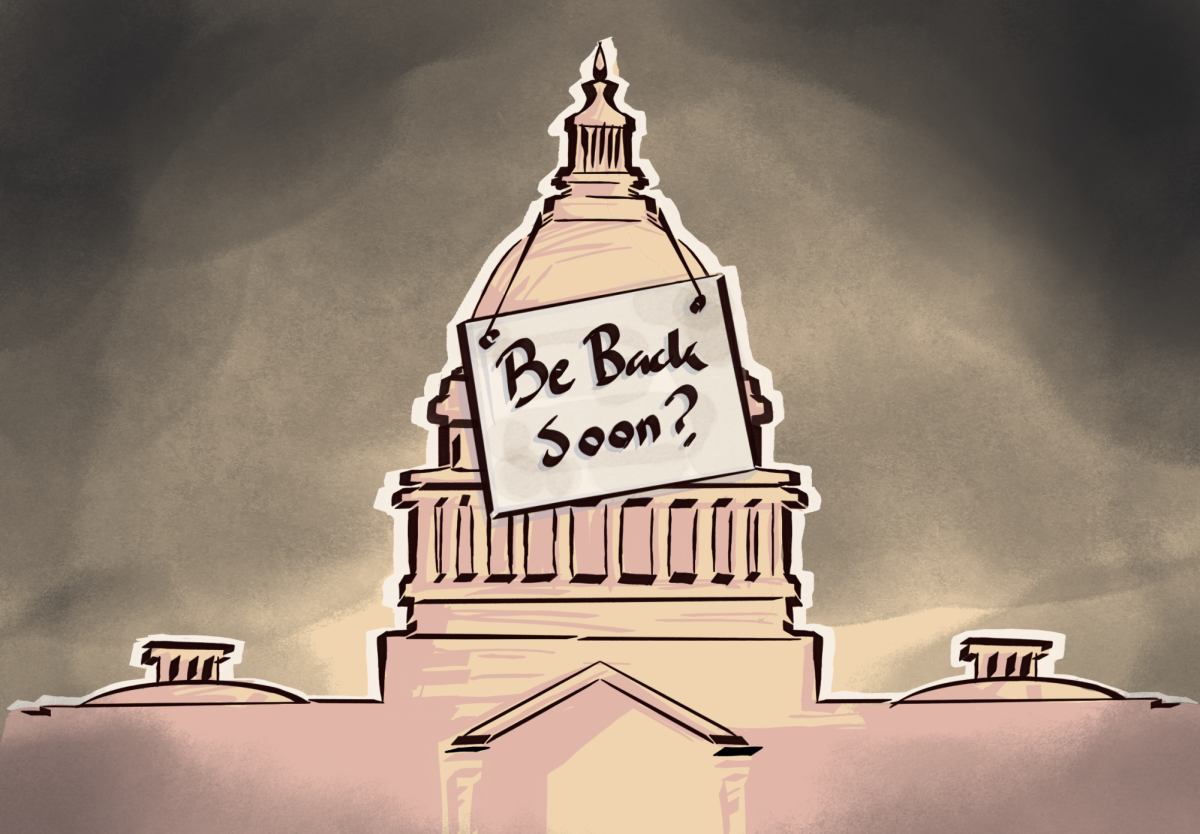Most other industrialized countries have a centralized healthcare system within the government, but the U.S. has a privatized healthcare system to the detriment of the average citizen.
People online swarming in support of an utterly immoral and flagrant act of violence — the killing of UnitedHealthcare CEO Brian Thompson — shouldn’t come as a shock.
A for-profit, privatized system allows the exploitation of money off the backs of Americans and only benefits the few capital owners at the very top, harming a majority of folks.
The murder of Thompson was obviously not justified — nor is any murder — however, it has sparked a necessary conversation about America’s corrupt healthcare system.
8% of the U.S. population is estimated to have lived without health insurance in 2023, translating to about 26 million Americans. This number was almost twice as bad before the Affordable Care Act (ACA) was enacted in 2010, proving that progress is possible when people are motivated for change.
So why are so many people still without coverage?
The costs of healthcare in America are strenuous; even with help from federal law — like the ACA — it is still a struggle for many to fit into their budget. The average family income was $80,610 in 2023, and the average cost of family healthcare was $25,572 in 2024. On average 75% of their family premiums are covered by their employer, leaving an average of $6,393 to be paid by the worker.
One of the main problems with the healthcare system is the need for profit. The motivation to provide help is driven by the money made from premiums. The company owners get to enjoy lucrative royalties and luxurious corner-offices, all funded by the people who paid for a service and are often let down at their most vulnerable moments.
UnitedHealth Group, the parent company of UnitedHealthcare, is one of the most valuable corporations in America, earning $23.144 billion in profit during 2023. However, when a company designed to serve the people who fund it fails to deliver on its promises yet retains their money, it represents a profound failure of its purpose.
As the wealth disparity grows more stark, people are becoming aware of it.
What makes this killing so impactful is the millions of people who called out in support of it.
Not only was Thompson the CEO of the largest healthcare provider in the country, he stands out as one of the most significant Americans living in the upper class to be murdered in recent years. Many people online see this murder as a win for the average citizen, viewing it as the removal of someone who has been making their lives more difficult.
The suspect Mangione did not commit a righteous crime like some may believe, but he did start a conversation. Thompson is a figurehead for a much bigger problem.
Thompson earned $10.2 million last year according to UnitedHealth Group, with $9.2 million of that being awarded in various forms on top of his $1 million salary. If the company has such a substantial amount of money available, why isn’t it being utilized to lower policy costs or cover more claims instead of pooling into one man’s salary?
There’s no justifiable answer.
This is negligence for their customers at best.
Insurance companies have a long-standing history of discrimination against people with higher healthcare needs, often charging exorbitant rates or denying coverage altogether.
An example of this dates back to the 1800s, when railroads gained popularity and expanded across the states. As workers unionized, brotherhoods were formed to secure compensation in case of job-related injuries.
This helped but ultimately did not solve unethical healthcare coverage.
As of the early 1900s, only about 24% of railway workers were members of brotherhoods. This left 76% completely uncovered. For those that were covered, the abrasive costs of lawyers led to them seeing only unsatisfactory, minimal benefits.
Senator and future Supreme Court Justice George Sutherland said before the United States Employers’ Liability Commission that for the $12 million spent on injuries and deaths per year, only $5 million ever saw recipients. “At least $7,000,000 is wasted between the employer and employee in paying personal injury lawyers and in other expenses,” he said.
Senator Sutherland saw a problem for his people and was determined to decrease the amount lost through legislative change, which he did follow through on with the Federal Employers Liability Act.
Change has also recently been made through the Affordable Care Act, which finally offered positive healthcare reform and made many groundbreaking improvements to a very broken system.
The healthcare system was much worse before the ACA; this should serve as a reminder of what greater strides can be taken.
Many people’s health insurance still has holes that need filling, such as universal dental and vision coverage. Not to mention the distressingly high deductibles on top of the already high premiums and the fact claims can be denied when that is the exact service being paid for. Despite the ACA doing so much, health insurance remains prohibitively expensive, and more efforts are needed to reduce the costs.
When circumstances are bad enough to bring one man to murder another, we need to seriously reevaluate our current situation. What separates America from other countries is our freedom, so why should we feel so restrained? If we fought a war over a tax on tea, we can fight against an unreasonable tax on our health. Murder is not the right way to solve this problem, so we must band together and peacefully reach a solution through positive legal change.
















Chris Babinec • Jan 14, 2025 at 9:18 am
What a fantastic piece of writing. This story is not only well crafted, it is well researched and makes more salient points in more thoughtful ways than some of the major newspapers such as the NYT and the Post. Thank you for this important article!